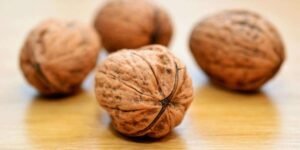
Gastric Ulcer and Peptic Ulcer. Elderly People Should Pay Attention to Sleep Quality to Avoid Recurrence
We often hear “So-and-so was so stressed that he got a gastric ulcer!” Gastric ulcer is actually a type of peptic ulcer. The so-called peptic ulcer refers to the esophagus, stomach, and duodenum. The mucous membranes of other organs are eroded by gastric acid, causing surface tissue damage, which is deeper than breaking the skin. Ulcers that occur in the stomach are called gastric ulcers, and ulcers that occur in the duodenum are called duodenal ulcers. Usually peptic ulcers refer to the above two, and only a few ulcers occur in the esophagus.
Generally speaking, the elderly have a higher chance of suffering from peptic ulcer, which is related to aging, bacteria, and drugs, and lack of sleep may also lead to recurrence of gastric ulcer. What’s going on? Let’s find out together!
Effects of old age on gastric ulcer and duodenal ulcer
Not only is work stress harmful to the stomach, but advanced age also increases the risk of peptic ulcers. The mucosal barrier of the stomach and duodenum is the first line of defense against external pathogens. It can block the passage of bacteria and toxins while allowing the body to absorb water and nutrients.
However, as the body ages, the secretion of gastric acid gradually decreases, which also destroys the mucosal shielding function, allowing Helicobacter pylori to take advantage of it, increasing the chance of suffering from peptic ulcer.
Not only does Helicobacter pylori worsen the mucosal defense mechanisms in our digestive tract, but even taking certain medications is not good for our stomachs. We have all heard the advertising slogan “No aspirin, no stomach irritation”, which refers to non-steroidal anti-inflammatory drugs (hereinafter referred to as NSAIDs)

Helicobacter pylori
NSAIDs are mostly acidic substances that can directly irritate the gastrointestinal mucosa and cause stomach discomfort. A study published in the British medical journal “The Lancet” found that Helicobacter pylori patients who took NSAIDs had a 61-fold higher risk of developing digestive tract infections than those who did not take NSAIDs. ulcer. The elderly are more likely to take NSAIDs than young people due to joint pain and other factors, and it is conceivable that they are more likely to suffer from gastric ulcers.
Sleep quality also affects gastric ulcers
The quality of sleep also affects the recurrence rate of peptic ulcer in the elderly. A report published in the Journal of the American Geriatrics Society studied subjects over the age of 69 who had recovered from peptic ulcer and found that the poorer their sleep quality, the more likely they were to suffer from stomach ulcers. Ulcer or recurrence of duodenal ulcer. And subjects who had recurrence of peptic ulcer were more likely to suffer from heart disease, diabetes, and were more likely to drink excessive alcohol than subjects who had not relapsed.
Therefore, for the elderly, on the one hand, as they age, the risk of suffering from gastric ulcers increases sharply. At the same time, they must also pay attention to the quality of sleep, so that they can sleep well and reduce the number of waking up in the middle of the night, so as to truly protect their “stomach”. body












